We were lucky to catch up with Laurie Frick recently and have shared our conversation below.
Alright, Laurie thanks for taking the time to share your stories and insights with us today. What’s been the most meaningful project you’ve worked on?
After graduate school I was making work about time, the way you remember time by triggering an event in your mind and tracing it backward and then slowly forward and decided to really study how time felt. I knew from my engineering background the best way to understand something is to measure it, so I started tracking how I spent my time everyday. It’s ridiculously hard to keep accurate notes, so I googled it thinking I could find some shortcut and ran across a guy who had been tracking every task and activity over 24 hours for years at https://www.fennetic.net/sleep/ . Couldn’t believe it! His charts looked almost exactly like my drawings from imagined time. Excitedly, I scraped all his data and began making artwork from his time tracking.
But the thought of using my own time still nagged at me, and voila! I found a way to measure my time while I was sleeping using a super accurate EEG monitor that strapped around my forehead. Light sleep, deep sleep… this monitor was amazingly accurate, just like going to a sleep clinic. Turns out you’re really busy while sleeping. But I didn’t want to be the only one wearing this crazy thing around my forehead at night, so I got one for my husband! (I ended up measuring over a 1000 nights of sleep, I wore that thing for over 3 years.)
He’s an amazingly good sport, and said “sure I’ll try it, but I’ll tell you – I’m a terrible sleeper”. It turns out, he is an amazing sleeper… most of the time. But he only remembers the bad. He got scores over 100, I didn’t think the thing even went that high. I’m getting scores in the 60s. Turns out his sleep swings wildly, mostly really good, occasionally bad. But the bad is what sticks with him. What if these tracking devices not only measure the data, but somehow capture your personality? I made a ton of work about sleep, and got a huge review in the Los Angeles Times from a show in LA called “Sleep Patterns”. It set me on a path of making handmade art from self tracking data.
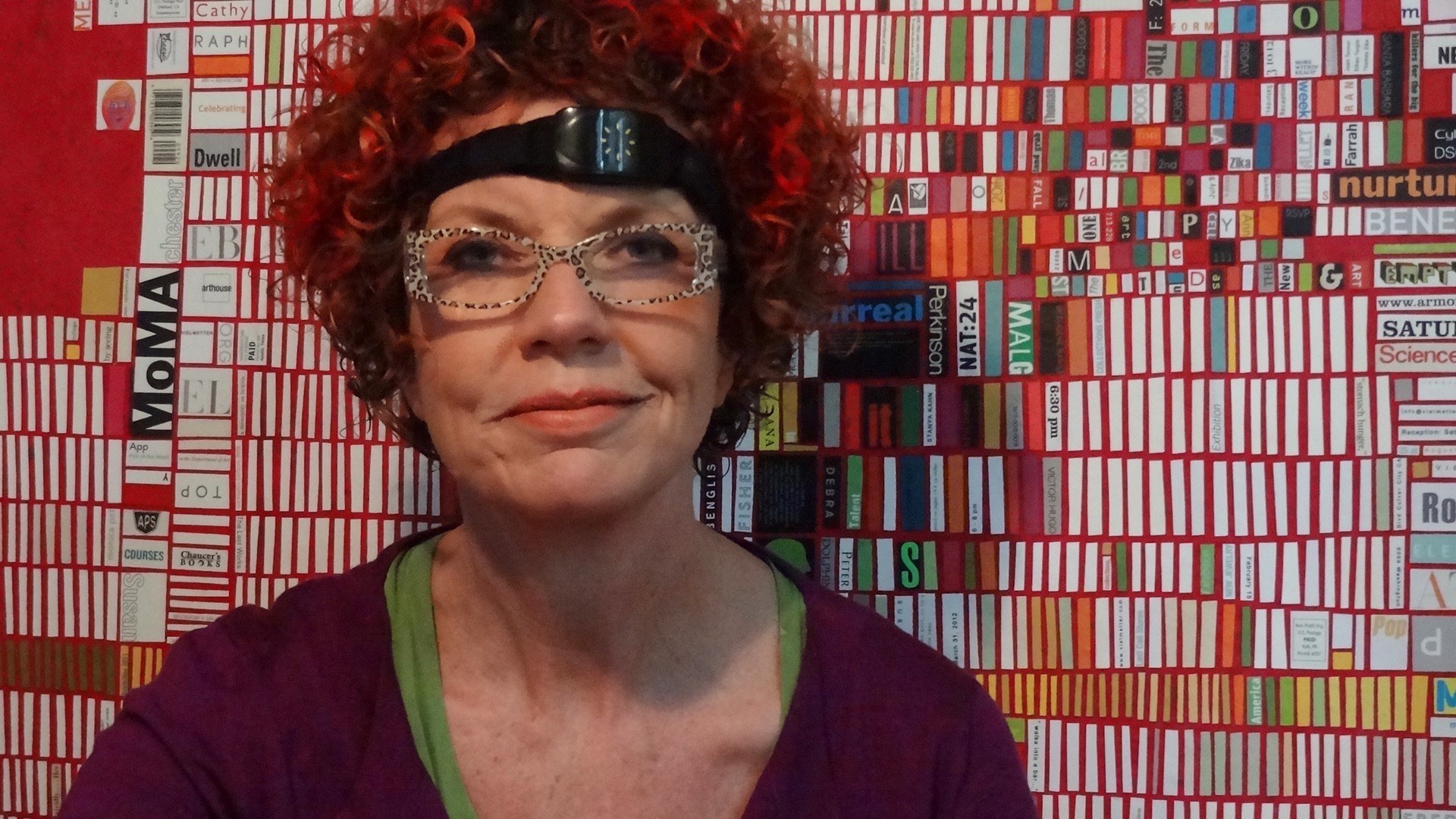
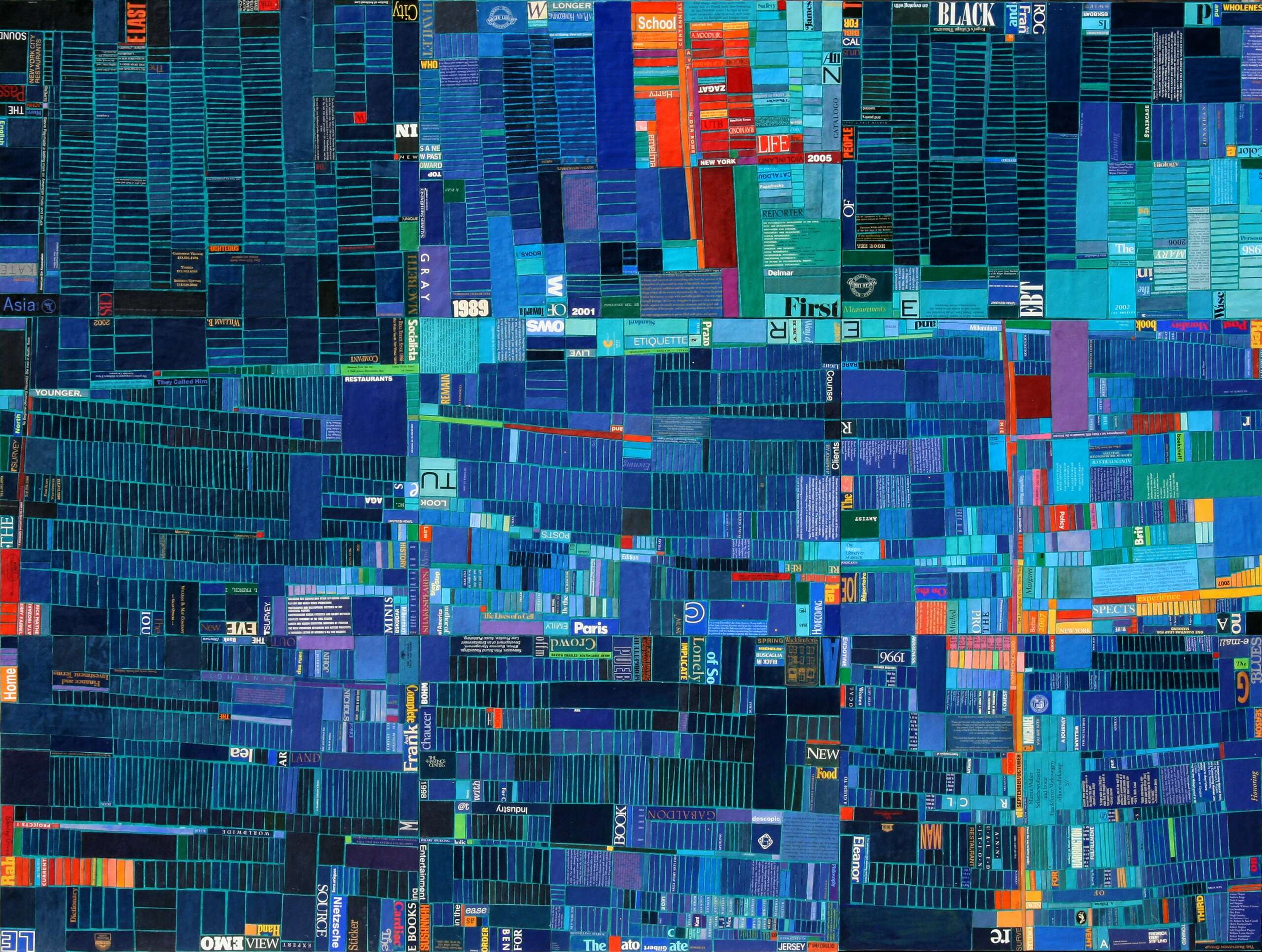
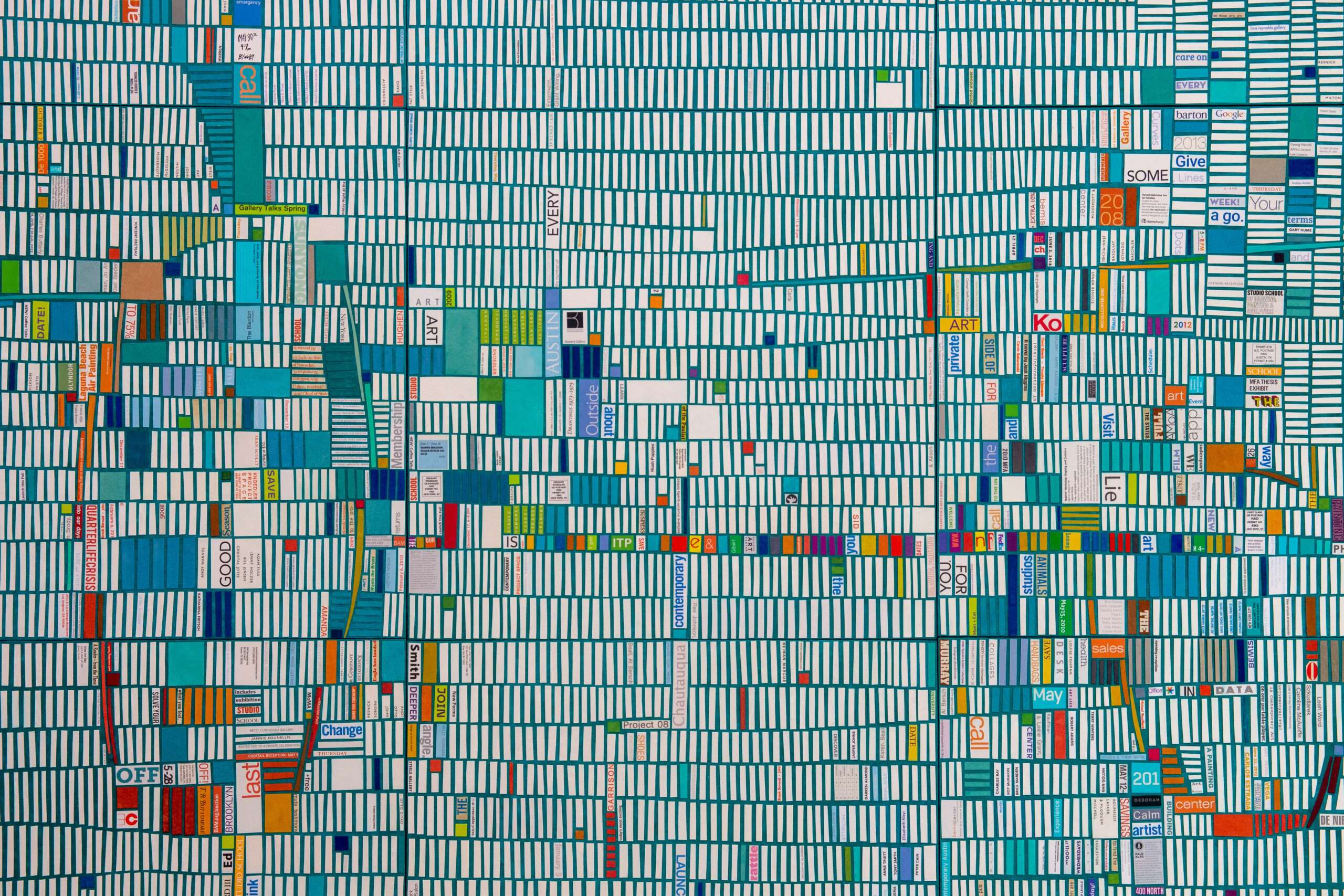
As always, we appreciate you sharing your insights and we’ve got a few more questions for you, but before we get to all of that can you take a minute to introduce yourself and give our readers some of your back background and context?
So many people I talk to agonize about the amount of data their phone collects about them. Over the past decade we’ve gone from mostly mysterious to almost completely tracked, and what that means is starting to seep in. No one is happy. But I think this whole agony about personal data is going to turn upside down, we will get to the point where we actually WANT all our data. I think owning our own data is going to be more important than privacy. Data is about identity, it’s about who we are. I have this fervent belief that someday we’ll put all our personal data into art patterns that surround us on the walls where we live. Our personal data turned into art.
My work attempts to explain and anticipate a world of pervasive data through large hand-made patterned wall installations. To contrast a cold and polished computer aesthetic, I use warmer, more familiar materials like wood, paper, wool, leather and glass. I believe the physicality of data and hand-built patterns will let us read and understand what our bodies and behavior tell us. Numeric data are abstract concepts, as humans we simply can’t make sense of large numbers, but we do have an ability to understand pattern – especially colorful pattern intuitively.
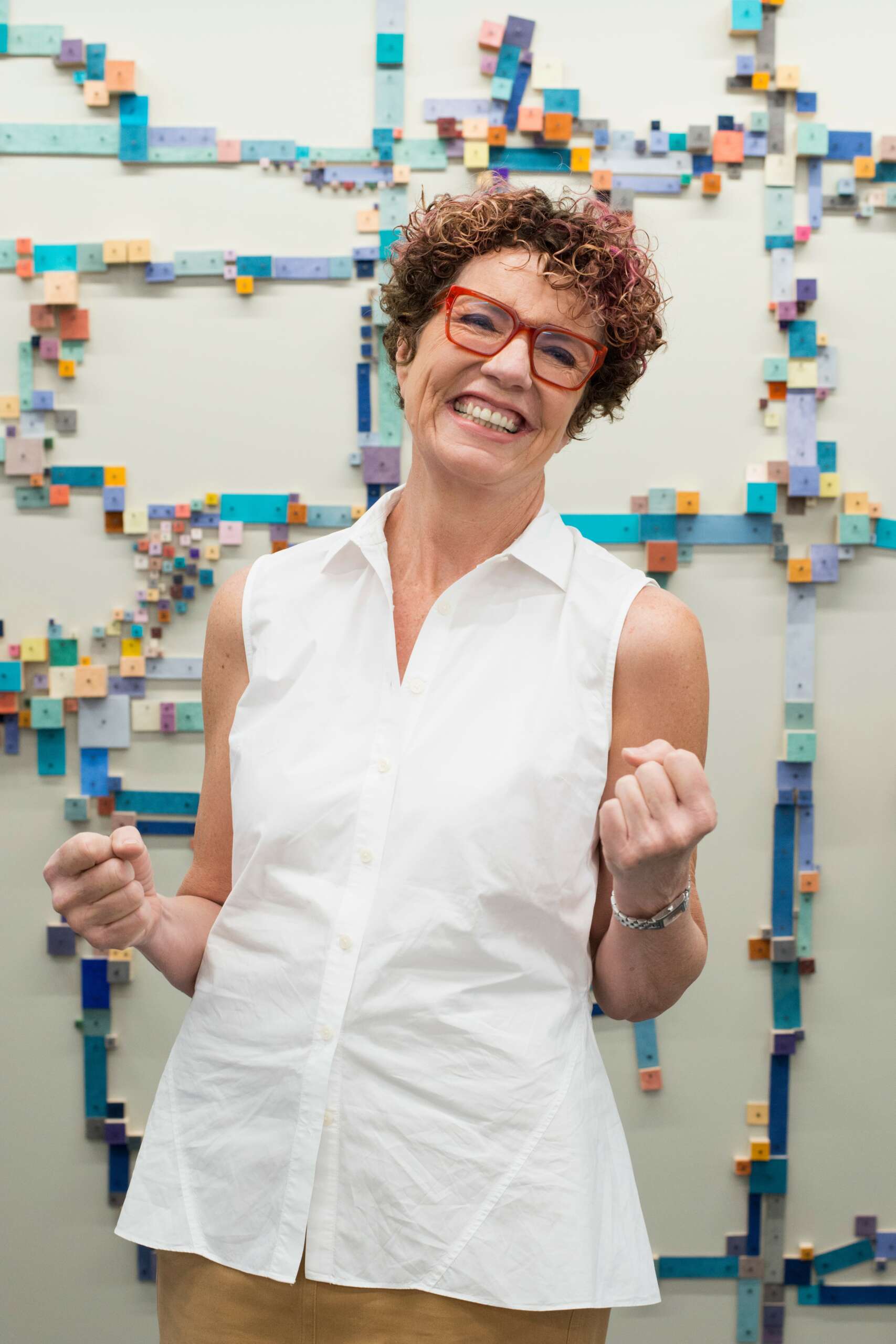
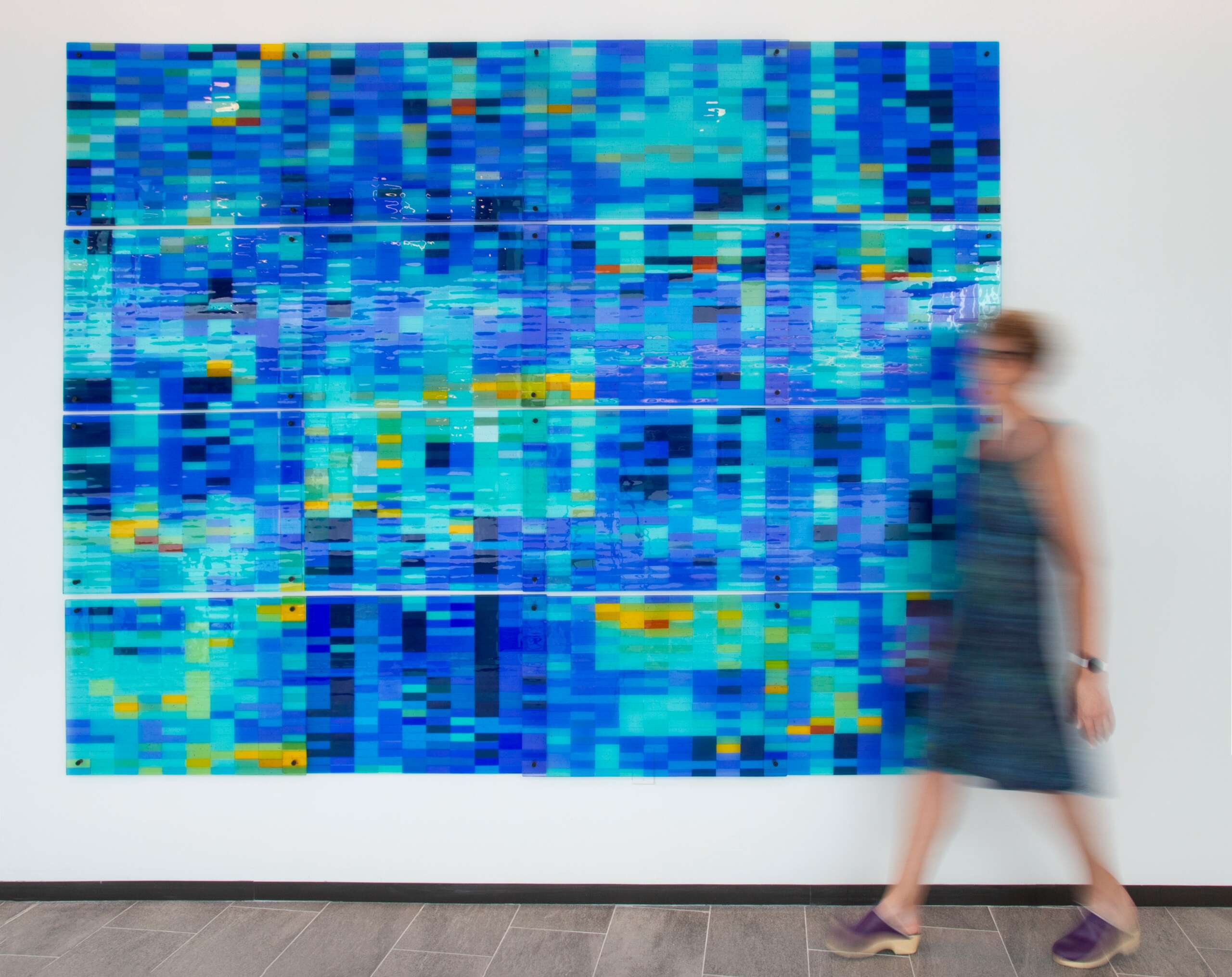
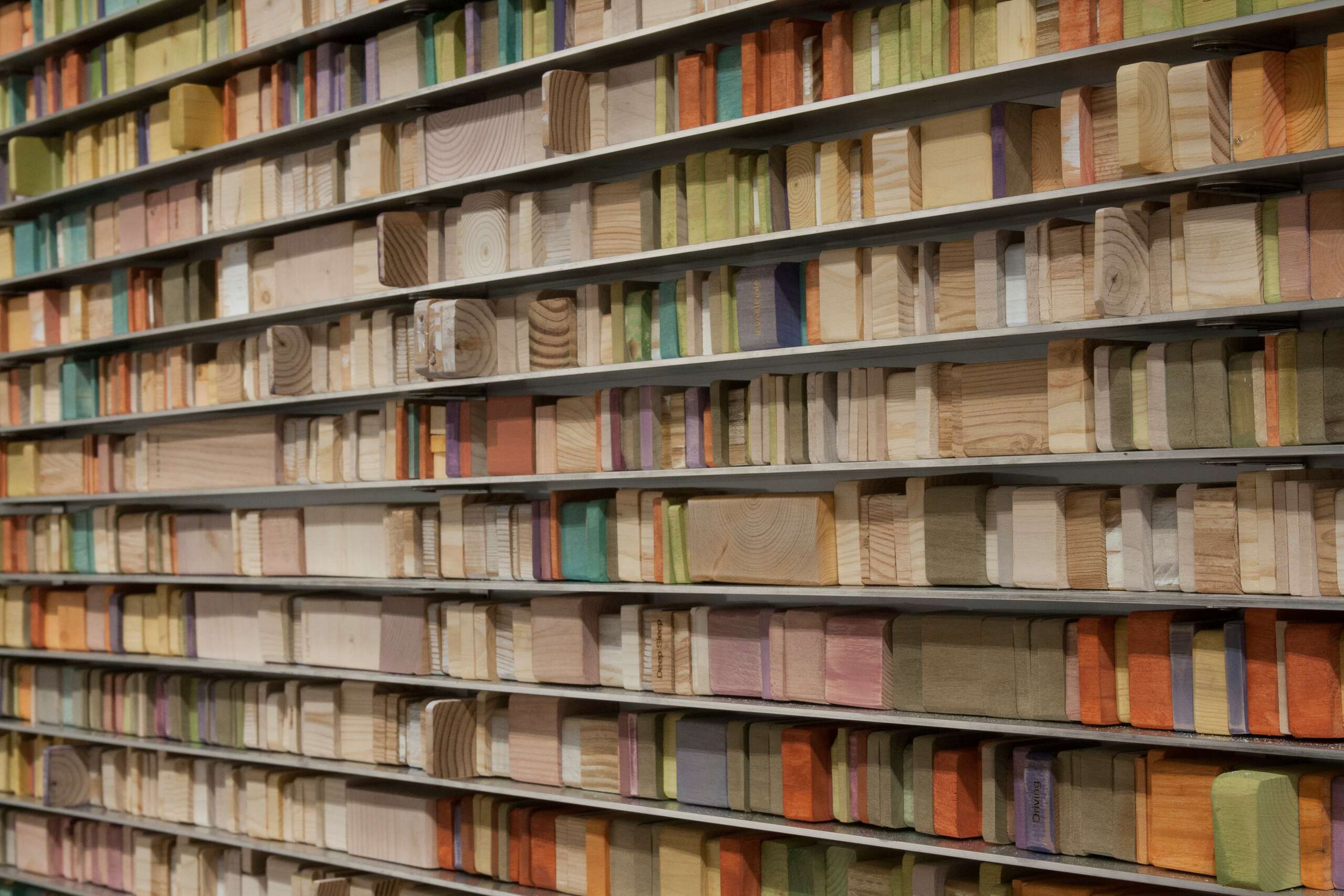
Do you think there is something that non-creatives might struggle to understand about your journey as a creative? Maybe you can shed some light?
As a kid I couldn’t wait to grow up, I was really tall, I’m still really tall. The group photos in elementary school offer proof, where the photographer stood the entire class on bleachers and snapped a picture I’m clearly the tallest one in the shot. I thought when I grew up I could catch up with my actual size, so much anxiety about who I was. I had this fixation that the future would fix all my problems, if I could just see the future I could understand myself and everything would settle down. I do think we leave clues for our future selves, my confidence that the future would hold promise persists, it’s the almost the entire basis of the art I make. This is the secret to understanding artists, we take the world we care about and try to explain it to others. Our explanations are visual, we produce our explanations in artwork.
What’s the most rewarding aspect of being a creative in your experience?
After an earlier career in tech, I went back to art school in New York to get an MFA. And while I loved the 20+ years I spent in the computer business, the life of an artist is better. It’s the perfect mix of physically making things, researching and learning things you need to master and traveling to go look at art. Seriously, make a 10 year plan to save money, quit your job and become an artist.
Contact Info:
- Website: [email protected]
- Instagram: @lauriefrick
Image Credits
Nicole Mlakar Anna Masurek


